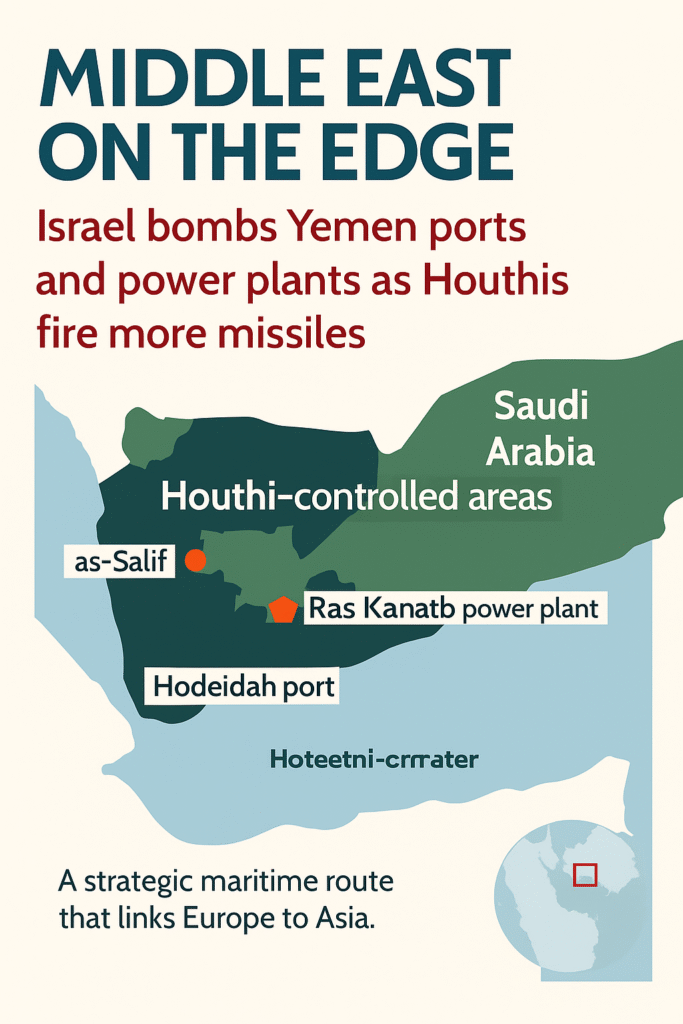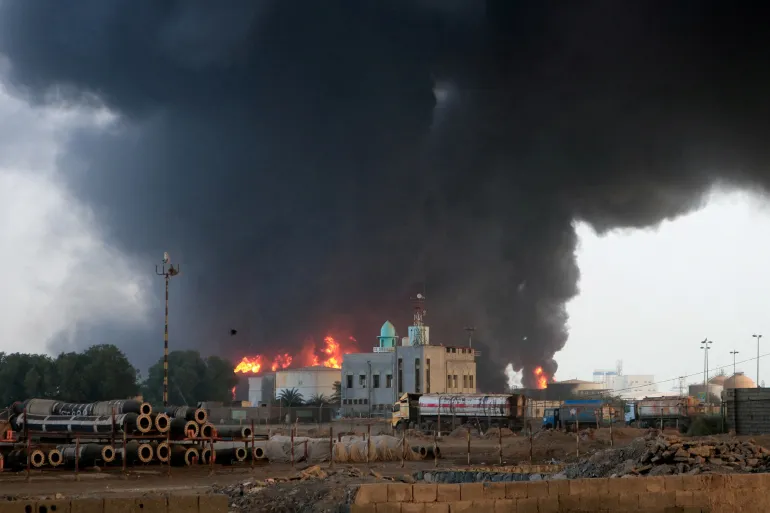
The Houthi rebel group has fired additional missiles into Israeli territory after Israel’s forces struck three ports and a power station in Yemeni territory under their control.
The Israeli military reported on Sunday that it hit the Ras Kathib power facility and the Red Sea coast ports of Hodeidah, Ras-Isa, and as-Salif.
The Galaxy Leadership, which was taken over by the Houthis and is still berthed at the port of Hodeidah, was also claimed to have had a radar system hit by it. Casualty reports were not immediately available.
The military claimed to have intercepted a Houthi missile early Sunday morning, setting off the Israeli assaults, which were the first to hit Yemen in almost a month.
The rebel group, which controls Yemen’s most populous areas, fired two more missiles on Israel later in the day, according to the Israeli army.
Although the results were still being reviewed, attempts were made to intercept them.
In retaliation for the attacks in Yemen, the Iran-aligned Houthi forces acknowledged firing drones and missiles at several locations in Israel.
According to Israel’s emergency services, no casualties or impacts from the rockets have been reported. The Houthis claim that their strikes on Israel are a show of support for the Palestinians being attacked by Israel in Gaza. Since Israel’s assault on Gaza started in 2023, the organization has conducted more than 100 strikes on commercial boats in the crucial Red Sea route and fired hundreds of missiles toward Israel.
once a truce between Israel and Hamas in January, the Houthis stopped their attacks, but they resumed once the United States attacked Yemen on March 15, murdering about 300 people in the weeks that followed.
The most recent escalation occurs during a delicate time in the Middle East, as Tehran considers whether to resume nuclear program talks after US airstrikes damaged Iran’s most sensitive atomic sites and a potential ceasefire in Israel’s war on Gaza looms.
Meanwhile, Ameen Hayyan Yemeni, a Houthi spokesperson, said that “a large portion” of Israel’s jets were forced to flee due to the group’s air defenses.
He stated in a statement on X that the employment of locally produced surface-to-air missiles in response “caused great confusion among enemy pilots and operations rooms.”


Leave a Reply